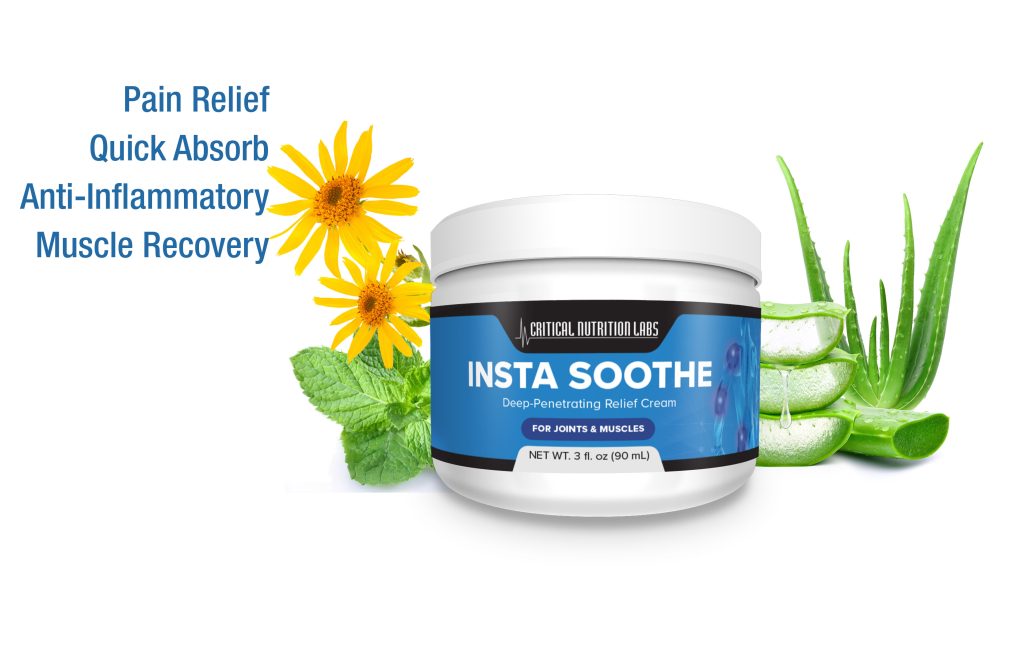Did you know that chronic inflammation is often called the ‘silent killer’?
This hidden menace can quietly wreak havoc on your body, speeding up the aging process and increasing your risk of numerous diseases.
For many older adults, this manifests as relentless joint pain, decreased energy levels, and the frustrating feeling of aging faster than their peers.
Imagine waking up every morning with aching joints, struggling to move without pain, and feeling constantly fatigued no matter how much rest you get.
It’s disheartening to watch your quality of life decline, feeling trapped in a body that seems to be working against you.
You might find yourself missing out on activities you once loved, and every day becomes a battle against your own body.
By understanding the impact of inflammation on aging and implementing simple, effective strategies, you can take control of your health and improve your overall well-being.
In this post, we’ll explore how you can fight inflammation through nutrition, supplements, and lifestyle changes, helping you to reclaim your vitality and enjoy a better quality of life.

Understanding Inflammation
Inflammation is your body’s natural defense mechanism against injury, infection, and harmful stimuli.
It’s a vital part of the healing process, involving the immune system sending white blood cells and other protective molecules to the affected area.
There are two types of inflammation:
Acute Inflammation: This is the body’s immediate response to harmful stimuli, such as a cut or infection. Symptoms typically include redness, heat, swelling, and pain, which subside as healing occurs.
Chronic Inflammation: Chronic inflammation is a long-lasting, subtle response that can persist for months or even years. It occurs when the body mistakenly attacks its own tissues or fails to eliminate the cause of inflammation. Chronic inflammation can go unnoticed for a long time, causing damage silently. [1]
The Body’s Natural Response to Injury and Infection
When your body encounters an injury or infection, it triggers an inflammatory response to protect and heal itself.
This involves the release of chemicals that increase blood flow to the injured area, causing redness and warmth.
White blood cells and other immune cells are recruited to fight off infection and remove damaged tissue, leading to swelling and pain.
This process is crucial for healing and protecting the body from further harm.
Inflammation and Aging
Chronic inflammation, often referred to as “inflammaging,” is a significant factor in the aging process.
As we age, our bodies are more likely to experience persistent, low-grade inflammation.
This ongoing inflammatory response can accelerate the deterioration of tissues and organs, leading to various age-related diseases.
Chronic inflammation damages cells and impairs their function, contributing to the development of conditions such as arthritis, cardiovascular disease, diabetes, and cognitive decline. [2]
Common Signs of Chronic Inflammation in Older Adults
Recognizing the signs of chronic inflammation is essential for taking proactive steps to manage it.
Common symptoms in older adults include: [1]
Persistent Joint Pain and Stiffness: Chronic inflammation can cause ongoing discomfort and limited mobility in the joints.
Fatigue: Feeling constantly tired or fatigued, even with adequate rest, can be a sign of underlying inflammation.
Digestive Issues: Chronic inflammation often affects the digestive system, leading to symptoms such as bloating, constipation, or diarrhea.
Skin Problems: Persistent inflammation can manifest as skin conditions like eczema, psoriasis, or unexplained rashes.
Cognitive Decline: Difficulty concentrating, memory issues, and other cognitive problems can be linked to chronic inflammation affecting the brain.

Causes of Chronic Inflammation in Older Adults
You know, it’s surprising how many things in our everyday lives can contribute to chronic inflammation.
Let’s break down some of the main culprits that might be affecting you or someone you know. [3]
Dietary Factors
One of the biggest contributors to inflammation is our diet. Foods that promote inflammation include:
Processed Foods: Think of all those packaged snacks and ready-made meals.
Sugars: Those sugary treats and drinks we all love can be a real problem.
Unhealthy Fats: Trans fats and saturated fats found in fried foods and certain oils.
Lifestyle Factors
Our daily habits play a huge role in inflammation, too:
Sedentary Lifestyle: Sitting too much and not getting enough exercise can really take a toll.
Poor Sleep: Not getting enough good quality sleep can keep our bodies in a constant state of stress.
Chronic Stress: Ongoing stress from work, family, or other sources can keep our inflammation levels high.
Health Conditions
Certain health conditions are closely linked to chronic inflammation:
Arthritis: This is a big one, especially as we get older.
Heart Disease: Inflammation can contribute to and worsen heart conditions.
Diabetes: High blood sugar levels are a significant driver of inflammation.
It’s eye-opening to see how many aspects of our daily lives and health can contribute to chronic inflammation. But knowing these causes is the first step to tackling them.

The Impact of Chronic Inflammation on Aging
Chronic inflammation doesn’t just affect one part of our body; it has a wide-reaching impact, especially as we age.
Let’s dive into how it can influence various aspects of our health and well-being. [3] [4]
Physical Health
Chronic inflammation can severely affect our physical health in multiple ways:
Joint Pain and Stiffness
Persistent inflammation can cause ongoing discomfort in our joints, making it increasingly difficult to move around and perform daily activities.
This stiffness can limit our range of motion and reduce overall flexibility.
Muscle Weakness
Inflammation can lead to muscle degradation, resulting in loss of muscle mass and strength.
This weakening affects our ability to stay active, maintain balance, and perform even simple physical tasks.
Increased Risk of Chronic Diseases
Chronic inflammation is a key contributor to a variety of serious health conditions.
It is linked to a higher risk of developing heart disease, which can lead to heart attacks and strokes.
Inflammation also plays a significant role in the onset and progression of type 2 diabetes and is associated with certain cancers, making it a critical factor in overall disease prevention and management.
Mental Health
Our mental health is significantly impacted by chronic inflammation:
Cognitive Decline
Inflammation can affect brain function, leading to issues with memory, thinking, and concentration.
This cognitive impairment can make it difficult to perform mental tasks, solve problems, and remember important information, contributing to a decline in mental sharpness and quality of life.
Increased Risk of Depression and Anxiety
Persistent inflammation is associated with higher rates of mental health issues such as depression and anxiety.
The inflammatory response can affect neurotransmitter systems in the brain, leading to mood disorders and emotional instability.
This connection underscores the importance of managing inflammation for maintaining mental well-being.
Overall Wellbeing
The combined effects of chronic inflammation can greatly diminish our overall quality of life:
Decreased Quality of Life
Constant pain, fatigue, and health issues can make everyday activities challenging and less enjoyable.
This decline in physical and mental health can lead to a reduced ability to engage in social activities, hobbies, and other interests that bring joy and satisfaction.
Reduced Energy Levels and Mobility
Inflammation often leads to chronic fatigue, making it difficult to stay active and maintain energy throughout the day.
This reduction in energy levels can affect our ability to exercise, participate in social events, and complete daily tasks.
Additionally, decreased mobility due to joint pain and muscle weakness further impacts our independence and overall sense of well-being.

Strategies to Reduce Inflammation
Reducing inflammation is key to improving your overall health and well-being, especially as you age.
Here are some effective strategies to help you combat chronic inflammation:
Anti-Inflammatory Diet
Your diet plays a crucial role in managing inflammation. Here’s what to include and avoid:
Foods to Include:
Fatty Fish: Fish that’s rich in omega-3 fatty acids might help reduce inflammation. Examples include mackerel, salmon, and sardines.
Leafy Greens: Vegetables such as spinach, kale, and Swiss chard are packed with anti-inflammatory compounds.
Berries: Blueberries, strawberries, and blackberries are high in antioxidants that fight inflammation.
Nuts: Almonds, walnuts, and other nuts provide healthy fats that help decrease inflammation.
Olive Oil: Extra virgin olive oil contains oleocanthal, which has anti-inflammatory properties. [5]
Foods to Avoid:
Trans Fats: Found in many processed and fried foods, these fats can trigger inflammation.
Refined Carbs: White bread, pastries, and other refined carbohydrates can increase inflammation.
Sugary Drinks: Sodas and sweetened beverages contribute to inflammation and should be minimized. [5]
Supplements for Inflammation
Incorporating certain supplements into your diet can also help reduce inflammation:
Omega-3 Fatty Acids: These essential fats, found in fish oil supplements, can lower inflammatory markers in the body.
Turmeric/Curcumin: Curcumin, the active ingredient in turmeric, has powerful anti-inflammatory effects and can be taken as a supplement.
Antioxidants: Vitamins C and E are antioxidants that help combat oxidative stress and inflammation.
Lifestyle Changes
Making positive lifestyle changes is essential for managing chronic inflammation: [6]
Regular Physical Activity: Exercise helps reduce inflammation by promoting overall health and improving immune function. Aim for at least 30 minutes of moderate activity, such as walking, swimming, or cycling, most days of the week.
Stress Management Techniques: Chronic stress can exacerbate inflammation. Incorporate stress-reducing activities like meditation, yoga, deep breathing exercises, or spending time in nature to help manage stress levels.
Improved Sleep Hygiene: You need quality sleep to reduce inflammation so it’s important to commit to a healthy and regular sleep schedule. Make sure your sleep environment is comfortable and free from distractions.
Anti-Inflammatory Cream: Additionally, topical treatments can provide targeted relief for inflammation-related discomfort. Insta Soothe from Critical Nutrition Labs, is formulated to help reduce inflammation and soothe sore joints and muscles. Applying this cream regularly can complement your overall anti-inflammatory strategy, providing immediate relief and supporting your journey to a healthier, more comfortable life.

Take Action Against Inflammation with Insta Soothe
When it comes to pain relief creams, not all products are created equal.
Many over-the-counter options are missing key ingredients that are proven to combat pain and reduce inflammation effectively.
If you’re looking for a solution that truly works, it’s time to consider Insta Soothe from Critical Nutrition Labs.
Why Insta Soothe Stands Out
Insta Soothe is formulated with a powerful blend of anti-inflammatory and pain-fighting ingredients that set it apart from ordinary creams.
Here’s what makes it unique:
Arnica Montana Flower Extract: Known for its natural anti-inflammatory properties, arnica montana helps reduce swelling and pain, making it a staple in effective pain relief formulations. [7]
Menthol: This ingredient provides a cooling sensation that not only alleviates pain but also helps to soothe sore muscles and joints. [8]
Aloe Vera Juice: Aloe vera is renowned for its soothing and healing properties. It helps to calm inflamed skin and provides moisture, ensuring that your skin stays hydrated and healthy as you combat inflammation. [9]
Experience the Difference
Insta Soothe combines these powerful ingredients to deliver a comprehensive solution for managing inflammation and pain.
Whether you’re dealing with chronic joint pain, muscle soreness, or occasional aches, Insta Soothe can help you fight back against inflammation and improve your quality of life.
Try Insta Soothe Today!
Don’t settle for pain relief creams that fall short. Choose Insta Soothe from Critical Nutrition Labs for a product that truly makes a difference.
Experience the relief and comfort you deserve with a cream that’s designed to target and reduce inflammation effectively.

